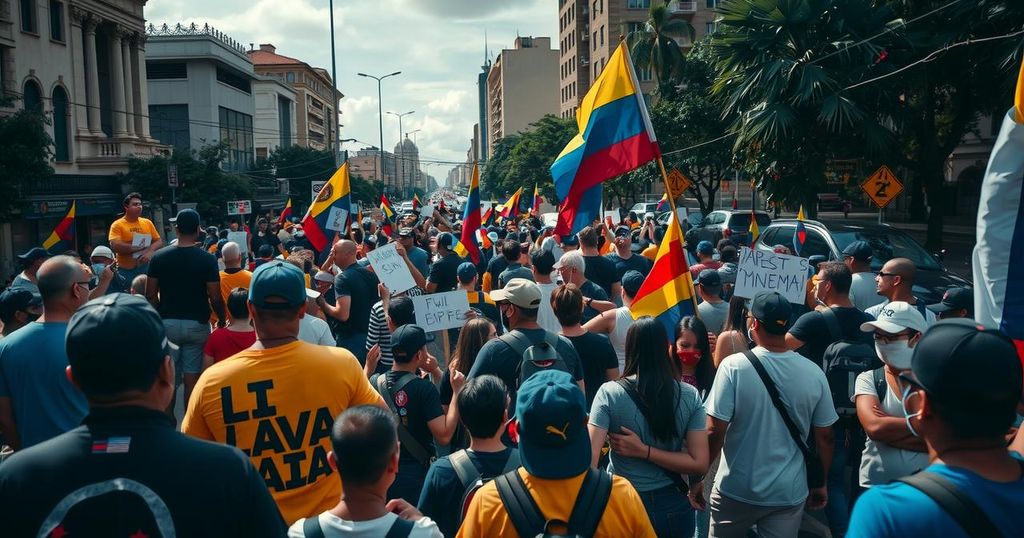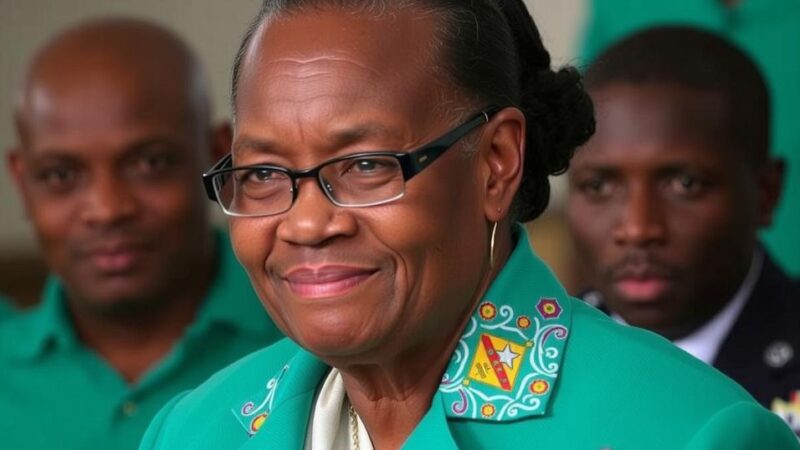On November 23, 2024, thousands of Colombians protested in major cities against President Gustavo Petro’s proposed reforms, citing government corruption. Demonstrators displayed signs and voiced their opposition to health, labor, and pension reforms. Petro, claiming only 20,000 participated, accused the opposition of attempting to destabilize his government. This protest marks a significant continuation of discontent since he took office in 2022.
On Saturday, November 23, 2024, Bogotá, Colombia witnessed a significant outpouring of public dissent as thousands of citizens rallied against President Gustavo Petro’s proposed reforms. The demonstrators, gathering in major cities including Medellín and Cali, expressed their opposition to reforms concerning health, labor, and pensions, voicing accusations of government corruption against the Petro administration. Many participants were retired military personnel and opposition figures, prominently showcasing signs that read, “No to Petro reforms” and “No to labor reforms,” underscoring their discontent with the current administration. Luis Carlos Hernández, a protester, articulated his frustration, stating, “I never expected to have to take to the streets to protest, to give my voice of rejection to this corruption,” further criticizing Petro’s supporters by labeling them as “guerrilla bandits.”
In response to these demonstrations, President Petro, a former guerrilla leader, minimized the event, claiming that the turnout was merely 20,000 participants and alleging the marchers were attempting to undermine the government. He stated via social media platform X that such actions were a direct affront to democratic processes, asserting, “In Colombia, we will stop the coup d’état.” These protests represent the latest in a series of public manifestations against Petro’s reform agenda, which have intensified since he assumed office in 2022.
This growing discontent highlights a significant division within Colombian society regarding President Petro’s administration and its policies. The protests, marked by symbols of nationalism such as the Colombian flag, signify a broader demand for accountability and transparency from the government. Luis Carlos Hernández’s assertions reflect a deep-seated belief among many Colombians that corruption remains a pressing issue that must be addressed through civic engagement and activism. The recent demonstrations also indicate a potential shift in public sentiment, possibly impacting the political landscape moving forward.
The socio-political climate in Colombia has been increasingly tumultuous since President Gustavo Petro took office in August 2022. His electoral platform included promises of significant reforms in health, labor, and pensions, aimed at addressing long-standing inequalities and issues within Colombian society. However, these proposed changes have sparked widespread controversy and opposition among various sectors of the population. Increasing demonstrations reflect the deep-rooted frustrations regarding government corruption and the perceived failure of the reforms to meet the needs of ordinary Colombians. The protests signify a challenge to Petro’s leadership and a call for greater accountability within his administration.
The protests held on November 23, 2024, represent a critical moment of public dissent against President Gustavo Petro’s administration concerning proposed reforms. With accusations of corruption and discontent lingering in the political atmosphere, these demonstrations indicate an escalating division within Colombian society. President Petro’s challenge remains to reconcile the demands of a disenchanted populace while steering his administration toward effective governance.
Original Source: apnews.com







